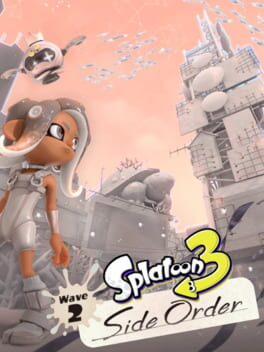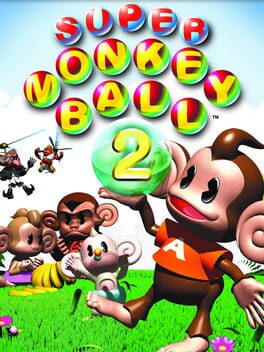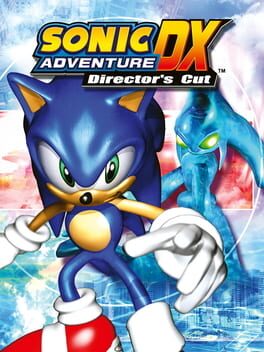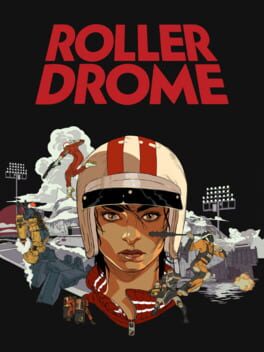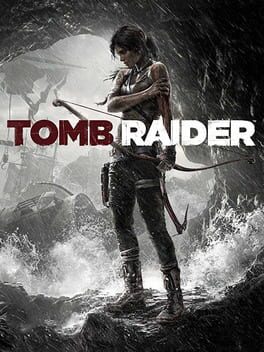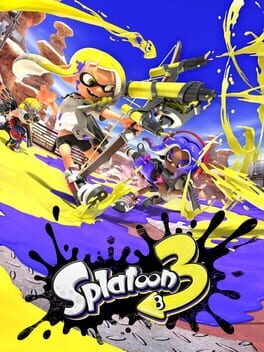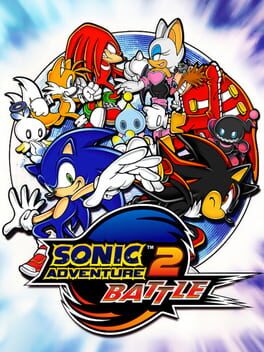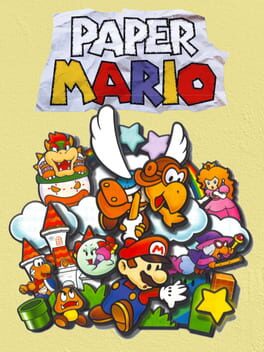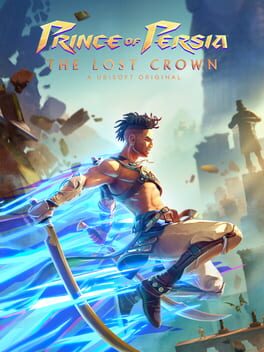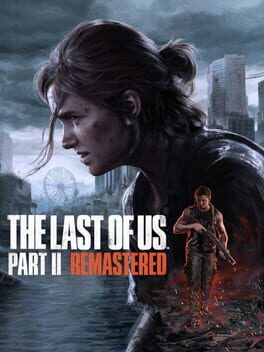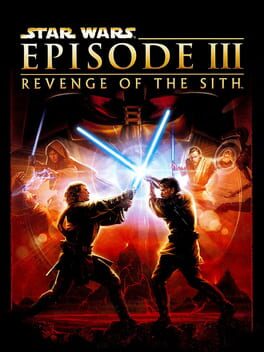waywardlaser
482 Reviews liked by waywardlaser
Persona 5 Royal
2019
Man, this game is really special. It has its faults, for sure, but there's absolutely no denying the boundless style and spectacular vibes that Persona 5 Royal is drowning in, from its world and combat to the way the UI is designed.
I've never really been one for turn-based JRPGs, but P5's combat and menus are so fast-paced and rewarding at literally every turn that it practically removes it of any possible tedium that could generally be found in JRPG combat systems. On top of that, there are so many individual layers of battle mechanics that you can tweak and experiment with that there are probably still new things to discover about it even at hour 80 of your playthrough.
The social aspect of the game is also incredibly rewarding, both from a gameplay and narrative side, granting you unique abilities and buffs for yourself and your companions each time you reach a new level of affinity with them. Each member of the Phantom Thieves, as well as (some of) the side characters you meet around Tokyo, are easy to love, platonically or romantically (you can’t romance Ryuji, sadly). It's an excellent cast of characters to spend a ~100-hour supernatural Tokyo crime caper odyssey with, complimented by great writing and character development across the board.
Then again, the social side of P5R wasn't one I was in any way sceptical of sticking the landing going in, as I already had experience with Persona 4 Golden. To improve on that game, all Persona 5 Royal really needed to do was have the gameplay at least match the strengths of the narrative and social systems, which, thankfully, it very much does this time.
However, there are parts of P5R that I do take issue with. While, thematically and as a whole, I truly enjoyed what Persona 5 Royal's narrative presented, there was one glaring issue for me that makes the whole thing kind of shaky: the romances that Joker can pursue between Kawakami and Takemi; the former being his homeroom teacher and the latter being his local doctor.
For a narrative that hinges on how 'shitty adults' in positions of power can abuse it and endanger the lives and futures of the younger generations, to then turn around and allow you to pursue romances with the responsible adults in Joker's life AS A MINOR is just not it. The game seems fully aware of this too, with the two even commenting that dating Joker seems irresponsible and dangerous, not to mention criminal, yet they proceed anyway.
Perhaps this is all hypocritical of me to say so but honestly, if it weren't for the rest of P5R being so incredibly good around this, it'd get docked major points from me.
Beyond that, I wasn't the biggest fan of Mementos, though I certainly didn't hate it by any means. It's an inspired way to grind for levelling and looting, as well as take care of any side quests to lengthen game time while tying into the story, but I would argue there's just a bit too much of it overall in comparison to the rest of the game.
The third semester that Royal adds is still great in and of itself but the final act of the base game is so strong that, by comparison, the additional arc that Royal adds kind of just feels like a separate side-adventure rather than something that feels intertwined with the core narrative and messaging of the base game story.
Regardless, I truly loved Persona 5 Royal again, despite its faults; some of which are more egregious than others. I realise that the current string of P5 spin-offs has people pissed that Atlus is milking a cash cow but with characters as great to be around as these and gameplay foundations as solid as this, it's milk I am more than happy to drink.
9/10
I've never really been one for turn-based JRPGs, but P5's combat and menus are so fast-paced and rewarding at literally every turn that it practically removes it of any possible tedium that could generally be found in JRPG combat systems. On top of that, there are so many individual layers of battle mechanics that you can tweak and experiment with that there are probably still new things to discover about it even at hour 80 of your playthrough.
The social aspect of the game is also incredibly rewarding, both from a gameplay and narrative side, granting you unique abilities and buffs for yourself and your companions each time you reach a new level of affinity with them. Each member of the Phantom Thieves, as well as (some of) the side characters you meet around Tokyo, are easy to love, platonically or romantically (you can’t romance Ryuji, sadly). It's an excellent cast of characters to spend a ~100-hour supernatural Tokyo crime caper odyssey with, complimented by great writing and character development across the board.
Then again, the social side of P5R wasn't one I was in any way sceptical of sticking the landing going in, as I already had experience with Persona 4 Golden. To improve on that game, all Persona 5 Royal really needed to do was have the gameplay at least match the strengths of the narrative and social systems, which, thankfully, it very much does this time.
However, there are parts of P5R that I do take issue with. While, thematically and as a whole, I truly enjoyed what Persona 5 Royal's narrative presented, there was one glaring issue for me that makes the whole thing kind of shaky: the romances that Joker can pursue between Kawakami and Takemi; the former being his homeroom teacher and the latter being his local doctor.
For a narrative that hinges on how 'shitty adults' in positions of power can abuse it and endanger the lives and futures of the younger generations, to then turn around and allow you to pursue romances with the responsible adults in Joker's life AS A MINOR is just not it. The game seems fully aware of this too, with the two even commenting that dating Joker seems irresponsible and dangerous, not to mention criminal, yet they proceed anyway.
Perhaps this is all hypocritical of me to say so but honestly, if it weren't for the rest of P5R being so incredibly good around this, it'd get docked major points from me.
Beyond that, I wasn't the biggest fan of Mementos, though I certainly didn't hate it by any means. It's an inspired way to grind for levelling and looting, as well as take care of any side quests to lengthen game time while tying into the story, but I would argue there's just a bit too much of it overall in comparison to the rest of the game.
The third semester that Royal adds is still great in and of itself but the final act of the base game is so strong that, by comparison, the additional arc that Royal adds kind of just feels like a separate side-adventure rather than something that feels intertwined with the core narrative and messaging of the base game story.
Regardless, I truly loved Persona 5 Royal again, despite its faults; some of which are more egregious than others. I realise that the current string of P5 spin-offs has people pissed that Atlus is milking a cash cow but with characters as great to be around as these and gameplay foundations as solid as this, it's milk I am more than happy to drink.
9/10
Super Monkey Ball 2
2002
Fluffy Fall
2018
Rollerdrome
2022
Most of my issues with this game are spoiler-related, even some of the gameplay-related ones. In short, this game was a bit of a disappointment for me, especially when compared to 7. It definitely had it’s moments but I preferred 7 for the most part in many areas, other than the combat of course. I’ll do a spoiler-filled review soonish hopefully. No idea when, as I don’t really want to think about this game for ages. It left me feeling very exhausted, and not in a good way.
Tomb Raider
2013
Splatoon 3
2022
Paper Mario
2000
It's been over 10 years since I last replayed this, so naturally I had to prove that I still have it by deliberately doing the Anti Guy Brigade and crushing all three of them in the same turn. Flower Fields really is the only low point here, if only just for the annoying layout and weird backtracking, but we follow it up with the Penguin Murder Mystery so I can't even be mad. Delightful nostalgia trip, can't wait to finally replay TTYD this year too.
Initially felt inclined to rate The Lost Crown slightly lower due to some minor annoyances brought about by glitches, but by the end, I realised it represents too much of what I want out of this industry to lowball it. This game’s not just a welcome franchise revival or a showcase of a big publisher’s willingness to get experimental, it’s equally a reminder that not enough people are aware of what consistently great developers Ubisoft Montpellier are, an exercise in hardcore Indo-Persian frisbeeing, a vindication of Warrior Within enjoyers and – if you ask me – the single best search-‘em-up outside of actual Metroid games.
There’s a few indicators that Warrior Within was a point of study here – Sargon dual wields swords, it’s bloodier and more combat-oriented than most other entries, creatures from Persian folklore play a bigger role compared to original monsters and the Prince’s outfit from it was a preorder bonus – but the main one is that Warrior Within was Prince of Persia’s precedent for experimenting with a Metroid-y overworld. That more exploratory angle was always why I liked it best, so it’s just as well that The Last Crown expands on this like a duck to water. Mount Qaf’s dishing out surprises so regularly that the game never once feels stale despite how much longer it is than most of this genre, which is thanks not just to the conceptual creativity and sheer number of its biomes but also how those concepts inform their mechanics. To mention just one, my favourite’s the labyrinthine library whose master’s hunger for knowledge ended up turning him into Mr. X, in which you have to juggle that looming threat with puzzles where realising the solution is only part of the equation; showing you how I did this particular one isn’t even really a spoiler, because the onus is still as much on your dexterity and forward-planning as on figuring out what to do. Comparatively straightforward, linear areas aren’t without some kind of distinctive pull or spectacle either, one major highlight being pressing the resume button on a naval battle which had been frozen in time centuries ago.
That sort of moment-to-moment variety goes a big way towards helping avoid the staleness or tedium that could’ve been invited by its length, but the biggest asset in that regard is what a joy it is to gradually unravel Mount Qaf. I love the powers in this to the point that I’m hoping future metroidbraniacs rip them off wholesale. Nearly every individual one of them opens up several means of approach in both platforming and combat by itself; teleporting to an afterimage with Shadow of the Simurgh to slip through obstacles or set up multiple charged attacks quicker than you normally could, phasing between realities like in Soul Reaver to control when certain enemies or platforms become tangible, stuffing an explosive in your pocket to unveil a hidden respite in a precision platforming segment or even an entire enemy to even the odds in a particularly tough encounter… Every time I unlocked a new one, my mind was racing at the possibilities. Combine just a few with a little out-of-the-box thinking and it feels like you can reach just about anywhere – I’ve no idea how you’re “supposed” to get past the bit in that clip normally, and that’s beautiful.
Its combat designers similarly outdo themselves. Experimentation’s the name of the game, in part thanks to the impressive amount of hit reactions on its enemies’ part. They and bosses can be varyingly be tripped, launched, juggled, wallsplatted and more, but these differ heavily according to their weight class, which contributes to them being as varied functionally as visually in addition to making target prioritisation pretty frantic whenever big bois are mixed in with little ones. Coupled with the aforementioned powers, your means of approach are spruced up by the extent to which you can alter Sargon’s attributes through an equivalent to Hollow Knight’s charm system. I personally set him up with a ranged shockwave on melee attacks and another letting you turn the chakram into a lingering hazard, with an additional one that heals you on successful parries in case I ran out of potions during the increasingly tough later levels and their gleefully Shonen boss fights, but the customisation on offer’s such that your combat comfort zone’ll likely be pretty different. The feedback on attacks also deserves credit, seemingly taking pointers from Dreadtroid in that respect (love the slight screenshake on each hit in particular). As I said to a friend of mine, himself a French weeb, I’d loosely compare The Lost Crown to Streets of Rage 4 in that it represents what happens when a bunch of French weebs get together and stuff as much of whatever they think is coolest into a game as possible: an exhibition of action gameplay so well-studied and thoroughly understood you’d swear it was made by the Japanese genre figureheads they so clearly admire.
Same goes for its visual artists and the carvers of ancient rock reliefs they palpably draw inspiration from. It’s a delight to see this series dig deeper into the historical iconography of its namesake, ornate Faravahars and esoteric cuneiform and all, tempered by the hand of Rayman Legends’ art director to drape it all in this lovely cartoony, stylised edge. I imagine part of why it runs so well both handheld and docked’s due in part to some clever tricks the artists use with the backgrounds and certain characters too, rendering them with painted 2D images as opposed to fully textured 3D models; really lends figures like the Simurgh and places like the Crossroads of Time an otherworldly feel.
I’ve always been iffy on how “Ubisoft” is used as a descriptor, partially because it often crops up regardless of how similar the game it’s used in reference to actually is to any of their games, but also because there are so many Ubisofts that you can’t really talk about them like they’re a singular entity. I mentioned in my Chaos Theory review that I find it hard not to retain some goodwill towards them so long as at least some of their oldheads remain, and while that holds true, The Lost Crown’s also a compelling case for their newcomers. It’s clear evidence that there’s a swathe of latent talent amongst the group’s bloated headcount primed and ready for the chance to be let off the mobile game hamster wheel and deliver some genre-best efforts, with such avalanches of great ideas that I haven’t even mentioned Memory Shards or that this has a Persian Vergil who uses the 3D games’ time powers against you. Severely hoping Ahriman decides to lay off for a bit so that this game and the people behind it can see the success they deserve, and so we can get more of those in turn.
There’s a few indicators that Warrior Within was a point of study here – Sargon dual wields swords, it’s bloodier and more combat-oriented than most other entries, creatures from Persian folklore play a bigger role compared to original monsters and the Prince’s outfit from it was a preorder bonus – but the main one is that Warrior Within was Prince of Persia’s precedent for experimenting with a Metroid-y overworld. That more exploratory angle was always why I liked it best, so it’s just as well that The Last Crown expands on this like a duck to water. Mount Qaf’s dishing out surprises so regularly that the game never once feels stale despite how much longer it is than most of this genre, which is thanks not just to the conceptual creativity and sheer number of its biomes but also how those concepts inform their mechanics. To mention just one, my favourite’s the labyrinthine library whose master’s hunger for knowledge ended up turning him into Mr. X, in which you have to juggle that looming threat with puzzles where realising the solution is only part of the equation; showing you how I did this particular one isn’t even really a spoiler, because the onus is still as much on your dexterity and forward-planning as on figuring out what to do. Comparatively straightforward, linear areas aren’t without some kind of distinctive pull or spectacle either, one major highlight being pressing the resume button on a naval battle which had been frozen in time centuries ago.
That sort of moment-to-moment variety goes a big way towards helping avoid the staleness or tedium that could’ve been invited by its length, but the biggest asset in that regard is what a joy it is to gradually unravel Mount Qaf. I love the powers in this to the point that I’m hoping future metroidbraniacs rip them off wholesale. Nearly every individual one of them opens up several means of approach in both platforming and combat by itself; teleporting to an afterimage with Shadow of the Simurgh to slip through obstacles or set up multiple charged attacks quicker than you normally could, phasing between realities like in Soul Reaver to control when certain enemies or platforms become tangible, stuffing an explosive in your pocket to unveil a hidden respite in a precision platforming segment or even an entire enemy to even the odds in a particularly tough encounter… Every time I unlocked a new one, my mind was racing at the possibilities. Combine just a few with a little out-of-the-box thinking and it feels like you can reach just about anywhere – I’ve no idea how you’re “supposed” to get past the bit in that clip normally, and that’s beautiful.
Its combat designers similarly outdo themselves. Experimentation’s the name of the game, in part thanks to the impressive amount of hit reactions on its enemies’ part. They and bosses can be varyingly be tripped, launched, juggled, wallsplatted and more, but these differ heavily according to their weight class, which contributes to them being as varied functionally as visually in addition to making target prioritisation pretty frantic whenever big bois are mixed in with little ones. Coupled with the aforementioned powers, your means of approach are spruced up by the extent to which you can alter Sargon’s attributes through an equivalent to Hollow Knight’s charm system. I personally set him up with a ranged shockwave on melee attacks and another letting you turn the chakram into a lingering hazard, with an additional one that heals you on successful parries in case I ran out of potions during the increasingly tough later levels and their gleefully Shonen boss fights, but the customisation on offer’s such that your combat comfort zone’ll likely be pretty different. The feedback on attacks also deserves credit, seemingly taking pointers from Dreadtroid in that respect (love the slight screenshake on each hit in particular). As I said to a friend of mine, himself a French weeb, I’d loosely compare The Lost Crown to Streets of Rage 4 in that it represents what happens when a bunch of French weebs get together and stuff as much of whatever they think is coolest into a game as possible: an exhibition of action gameplay so well-studied and thoroughly understood you’d swear it was made by the Japanese genre figureheads they so clearly admire.
Same goes for its visual artists and the carvers of ancient rock reliefs they palpably draw inspiration from. It’s a delight to see this series dig deeper into the historical iconography of its namesake, ornate Faravahars and esoteric cuneiform and all, tempered by the hand of Rayman Legends’ art director to drape it all in this lovely cartoony, stylised edge. I imagine part of why it runs so well both handheld and docked’s due in part to some clever tricks the artists use with the backgrounds and certain characters too, rendering them with painted 2D images as opposed to fully textured 3D models; really lends figures like the Simurgh and places like the Crossroads of Time an otherworldly feel.
I’ve always been iffy on how “Ubisoft” is used as a descriptor, partially because it often crops up regardless of how similar the game it’s used in reference to actually is to any of their games, but also because there are so many Ubisofts that you can’t really talk about them like they’re a singular entity. I mentioned in my Chaos Theory review that I find it hard not to retain some goodwill towards them so long as at least some of their oldheads remain, and while that holds true, The Lost Crown’s also a compelling case for their newcomers. It’s clear evidence that there’s a swathe of latent talent amongst the group’s bloated headcount primed and ready for the chance to be let off the mobile game hamster wheel and deliver some genre-best efforts, with such avalanches of great ideas that I haven’t even mentioned Memory Shards or that this has a Persian Vergil who uses the 3D games’ time powers against you. Severely hoping Ahriman decides to lay off for a bit so that this game and the people behind it can see the success they deserve, and so we can get more of those in turn.
Look, like clearly many people on here and everywhere else, my opinion on Neil Druckmann both as a person and as a creative has changed over time; there's no denying that. However, I also cannot deny how much I love The Last of Us Part II, despite the moral baggage both inside and outside of its creation.
That said, while I don't necessarily agree with the top reviews here calling this remaster creatively bankrupt, I do totally get where they're coming from. For the equivalent of $10, I definitely felt I got my money's worth here though. I've always loved any and all behind-the-scenes looks at games, especially when Valve does it, and the addition of Dev Commentary for the cutscenes and the Lost Levels section for this remaster is a real treat. It would have been cool to get commentary on all the levels in the main game but I understand that's a big ask given its length. Still, what is given here is more than sufficient.
No Return is the highlight of the whole package, of course. I'm usually so-so on roguelikes, unless they have some neato gimmick to them, but honestly, Part II's gameplay is solid enough that it carries the whole thing. It's surprisingly involved too, and clearly not just something they shoved in there as an extra thing. There are tiers of challenges, several game types, and a pretty nifty unlock system that carries from run to run. You probably won't spend more time on it than the main game but it's a really cool thing to have regardless, and I wouldn't be surprised if they make it a standalone release separate from the rest of the remaster.
All of the PS5 controller's gimmicks (not meant derogatorily) do switch things up for another playthrough to make it feel unique, but I wouldn't say they enhance the overall experience or are totally essential, or anything. Then again, I've already played through this a few times so perhaps it’s a different case for first-timers.
All in all, the PS5 remaster of Part II is a great addition to a truly fantastic game. I can totally see it not being worth the price for some people but I suppose that depends on how much you're willing to spend on it and how long you're willing to wait for a sale otherwise. Still, if you already love this game, this is pretty essential.
9.5/10
That said, while I don't necessarily agree with the top reviews here calling this remaster creatively bankrupt, I do totally get where they're coming from. For the equivalent of $10, I definitely felt I got my money's worth here though. I've always loved any and all behind-the-scenes looks at games, especially when Valve does it, and the addition of Dev Commentary for the cutscenes and the Lost Levels section for this remaster is a real treat. It would have been cool to get commentary on all the levels in the main game but I understand that's a big ask given its length. Still, what is given here is more than sufficient.
No Return is the highlight of the whole package, of course. I'm usually so-so on roguelikes, unless they have some neato gimmick to them, but honestly, Part II's gameplay is solid enough that it carries the whole thing. It's surprisingly involved too, and clearly not just something they shoved in there as an extra thing. There are tiers of challenges, several game types, and a pretty nifty unlock system that carries from run to run. You probably won't spend more time on it than the main game but it's a really cool thing to have regardless, and I wouldn't be surprised if they make it a standalone release separate from the rest of the remaster.
All of the PS5 controller's gimmicks (not meant derogatorily) do switch things up for another playthrough to make it feel unique, but I wouldn't say they enhance the overall experience or are totally essential, or anything. Then again, I've already played through this a few times so perhaps it’s a different case for first-timers.
All in all, the PS5 remaster of Part II is a great addition to a truly fantastic game. I can totally see it not being worth the price for some people but I suppose that depends on how much you're willing to spend on it and how long you're willing to wait for a sale otherwise. Still, if you already love this game, this is pretty essential.
9.5/10
This review contains spoilers
"The world calls for wetwork, and we answer. No greater good, no just cause. Cipher sent us to hell... but we're going even deeper."
"I know. I'm already a demon. Heaven's not my kind of place anyway."
The Phantom Pain is a lot. It's a conclusion to the Metal Gear Solid story, while also being a prequel to most of it. It's an innovative open-ended stealth sandbox adventure, while also being a base management game. It's about how the cost of war and the cycle of revenge cannot coexist with ideologies of heroism and peace, while also being about how fun it is to strap a balloon to a man and watch him fly away. It does all of these things perfectly. Now, you might be asking yourself how that's possible. Everyone has said their piece on this before; "it's unfinished, the story is undercooked, the gameplay is repetitive, it's not a satisfactory conclusion to the series etc." I'm not going to try and change anyone's mind, it doesn't matter to me if you hate this game or not, but I have a lot to say that might prove insightful, at the very least mildly interesting. This is going to be a long one.
I'll start with the story. Firstly, if you haven't played Peace Walker it's impossible to get everything you possibly can out of this. There's a ton of payoff and parallels that stem from that story, The Phantom Pain is essentially the anti-Peace Walker. Secondly, the cassette tapes are the codec calls, they've just been changed to where you have to go out of your way to listen to them. I've come to love this change overall, even if sometimes I do miss getting a call while in the field. There's much less over explaining in this than the other games. Kojima is known for going into too much detail at times, and while it still happens here, it feels a lot less aggregious. This is probably due to many of these kind of conversations being in the tapes, this way you can get the extra information you might want without it interrupting the narrative.
Punished "Venom" Snake is one of the most mischaracterised figures in gaming history. Many people wish that he had spoken more, wish that he had more agency, wish that he was more light-hearted, much like how Big Boss used to be. But Snake's lack of spoken dialogue, lack of agency, lack of anything you'd expect of him to have is incredibe characterisation. His silence speaks volumes as to the kind of man he is and to the kind of place he's in, both mentally and physically. Seeing him in charge of an extremely formidable military force, while also having a literal devil (Kaz) on his shoulder and an angel (Ocelot) on the other, both vying for approval from a man who's not all there, it's amazing. And at the end of it all, Snake and Kaz's quest for revenge ends on a whimper. It leaves them empty, it's an embarrassing display from both of them. All they can think of is back to the good old days, back to Peace Walker. They're both longing for a way of life that they shouldn't want, a life they pretty much still have. Stuck in the same cycle over and over and over and over again.
The gameplay is obviously great, anyone can see that, even just mere minutes into your first real mission in Afghanistan. I don't need to go into detail about the quality, it's one of, if not the best game in terms of moment to moment gameplay ever made. What it does exceptionally well it how it marriages it's themes and narrative into that gameplay loop.
Snake is trapped in a war without end, all he knows how to do is fight. Your own side ops keep piling up, you've always got something to do, someone to save, someone to kill. No matter how hard you try, no matter how much heroism you gain, no matter how many people you spare and save, that horn is never going away. You're a demon and you always will be. The feeling will never go away, you'll never be finished in a war without end. And just to top it off, just to add insult to injury, you're not even the man you think you are. You're not Big Boss. You're just some guy he knew. And when the truth is revealed, Big Boss talks for one final time in the entire franchise, directly to us; "I cheated death thanks to you. And thanks to you I've left my mark. You have too. You've written your own history. You're your own man. I'm Big Boss, and you are too. No... he's the two of us together. Where we are today, we built it. This story, this 'legend', it's ours. We can change the world, and with it the future. I am you, and you are me. Carry that with you wherever you go. Thank you, my friend. From here on out... you're Big Boss."
"I know. I'm already a demon. Heaven's not my kind of place anyway."
The Phantom Pain is a lot. It's a conclusion to the Metal Gear Solid story, while also being a prequel to most of it. It's an innovative open-ended stealth sandbox adventure, while also being a base management game. It's about how the cost of war and the cycle of revenge cannot coexist with ideologies of heroism and peace, while also being about how fun it is to strap a balloon to a man and watch him fly away. It does all of these things perfectly. Now, you might be asking yourself how that's possible. Everyone has said their piece on this before; "it's unfinished, the story is undercooked, the gameplay is repetitive, it's not a satisfactory conclusion to the series etc." I'm not going to try and change anyone's mind, it doesn't matter to me if you hate this game or not, but I have a lot to say that might prove insightful, at the very least mildly interesting. This is going to be a long one.
I'll start with the story. Firstly, if you haven't played Peace Walker it's impossible to get everything you possibly can out of this. There's a ton of payoff and parallels that stem from that story, The Phantom Pain is essentially the anti-Peace Walker. Secondly, the cassette tapes are the codec calls, they've just been changed to where you have to go out of your way to listen to them. I've come to love this change overall, even if sometimes I do miss getting a call while in the field. There's much less over explaining in this than the other games. Kojima is known for going into too much detail at times, and while it still happens here, it feels a lot less aggregious. This is probably due to many of these kind of conversations being in the tapes, this way you can get the extra information you might want without it interrupting the narrative.
Punished "Venom" Snake is one of the most mischaracterised figures in gaming history. Many people wish that he had spoken more, wish that he had more agency, wish that he was more light-hearted, much like how Big Boss used to be. But Snake's lack of spoken dialogue, lack of agency, lack of anything you'd expect of him to have is incredibe characterisation. His silence speaks volumes as to the kind of man he is and to the kind of place he's in, both mentally and physically. Seeing him in charge of an extremely formidable military force, while also having a literal devil (Kaz) on his shoulder and an angel (Ocelot) on the other, both vying for approval from a man who's not all there, it's amazing. And at the end of it all, Snake and Kaz's quest for revenge ends on a whimper. It leaves them empty, it's an embarrassing display from both of them. All they can think of is back to the good old days, back to Peace Walker. They're both longing for a way of life that they shouldn't want, a life they pretty much still have. Stuck in the same cycle over and over and over and over again.
The gameplay is obviously great, anyone can see that, even just mere minutes into your first real mission in Afghanistan. I don't need to go into detail about the quality, it's one of, if not the best game in terms of moment to moment gameplay ever made. What it does exceptionally well it how it marriages it's themes and narrative into that gameplay loop.
Snake is trapped in a war without end, all he knows how to do is fight. Your own side ops keep piling up, you've always got something to do, someone to save, someone to kill. No matter how hard you try, no matter how much heroism you gain, no matter how many people you spare and save, that horn is never going away. You're a demon and you always will be. The feeling will never go away, you'll never be finished in a war without end. And just to top it off, just to add insult to injury, you're not even the man you think you are. You're not Big Boss. You're just some guy he knew. And when the truth is revealed, Big Boss talks for one final time in the entire franchise, directly to us; "I cheated death thanks to you. And thanks to you I've left my mark. You have too. You've written your own history. You're your own man. I'm Big Boss, and you are too. No... he's the two of us together. Where we are today, we built it. This story, this 'legend', it's ours. We can change the world, and with it the future. I am you, and you are me. Carry that with you wherever you go. Thank you, my friend. From here on out... you're Big Boss."
